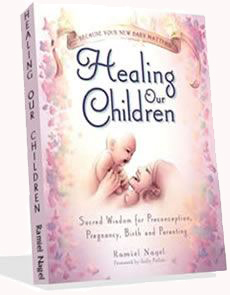Important Whole Foods Supplements to Consider During Pregnancy
According to the book Healing Our Children, having a healthy pregnancy depends on daily habits that focus around a diet balances with organic, whole foods. While most women are able to get sufficient nutritional levels from their food, sometimes it may be difficult to meet all of those nutritiona requirements during pregnancy, especially the pregnancy started with her body already deficient in certain fat-soluble vitamins. If a nutritional deficiency is applicable, then whole foods supplements might be appropriate, but be sure to avoid all synthetic forms of supplements.
When Whole Food Supplements Are Needed
If at any point in your pregnancy (anytime before, during or after) you don’t have enough trace minerals or important vitamins, then a fast solution to correct the deficiency is with a whole foods supplement. The long term solution is to make dietary changes so that you are naturally getting sufficient nutrition on a regular basis. But, the short-term also needs to be considered, and these whole foods supplements can help your baby to avoid nutritional deficiencies. There are a few supplements that you may consider during pregnancy, as recommended by Healing Our Children.
Whole Foods Supplements to Use During Pregnancy
- Amalaki Fruit or Acerola Berry: Both of these supplements are made by condensing high nutritional fruits. They are a great source of Vitamin C and other antioxidants.
- Borage, Black Currant or Evening Primrose Oils: Omega-6 fatty acids are often lacking in our modern diet, and these oils help to overcome that deficiency. If an adult is completely healthy, their body is capable of producing sufficient amounts of omega-6 fatty, but supplementation may be necessary if you have specific genetic traits that prohibit the product of this nutrient or if you’re in recovery from an illness.
- Spirulina: Seaweed condensed into a supplement form is great for health, it contains protein and minerals.
- Probiotics: Balancing the natural, bacterial ecosystem in your body is important for overall health and digestion. Using probiotics can help to regulate that balance, which will allow your body to maximize nutrient absorption and improve the digestive processes. If digestive problems are present, then it is a good idea to boost intestinal flora by consuming fermented foods (such as kefir) for a long-term solution or using a probiotic supplement for a short-term solution.
How To Find Quality, Whole Foods Ssupplements
There are a few big differences between synthetic supplements and whole foods supplements, and it is important for you to understand these differences. Real food sources are used to create whole foods supplements, whereas synthetic supplements are man-made with copy-cat nutrients. Also, the whole foods supplement uses all parts of food source, for example the nutrients are extracted from the entire acerola cherry. Synthetic vitamins and be potentially dangerous, becuase they only contain one isolated vitamin or mineral. It is better to get the nutrient profile as a whole, because all of the elements within the supplement work together to help you achieve the best results.
Don’t put your pregnancy at risk by using low-quality supplements from synthetic sources! There are many places online or in local health food stores where you can find whole foods supplements. Before buying, research the supplement and brand to verify the food sources that are used.
You can learn more about following a healthy pregnancy diet that eliminates the need for supplements, because sufficient amounts of nutrition are coming from a whole foods diet with healthy, organic ingredients. Read Healing Our Children, which is a book full of applicable information about your diet during all stages in life, including pregnancy, and breastfeeding.
Photo Credit: SuperFantastic from







